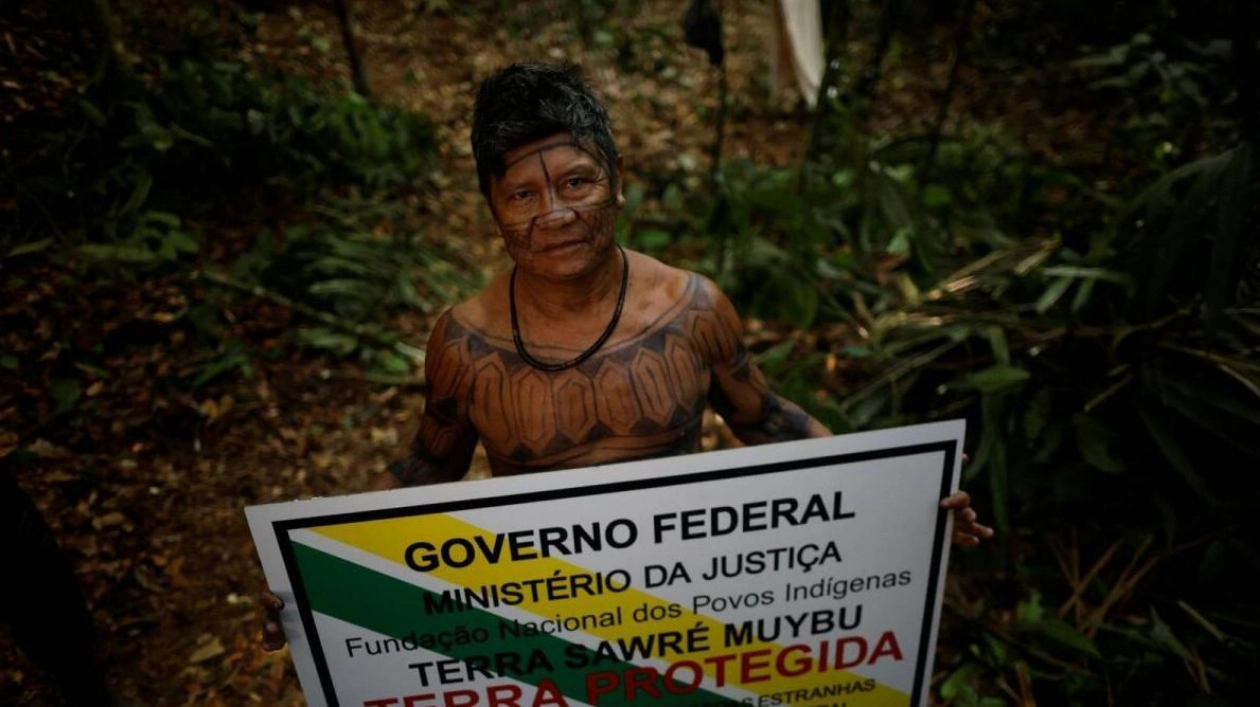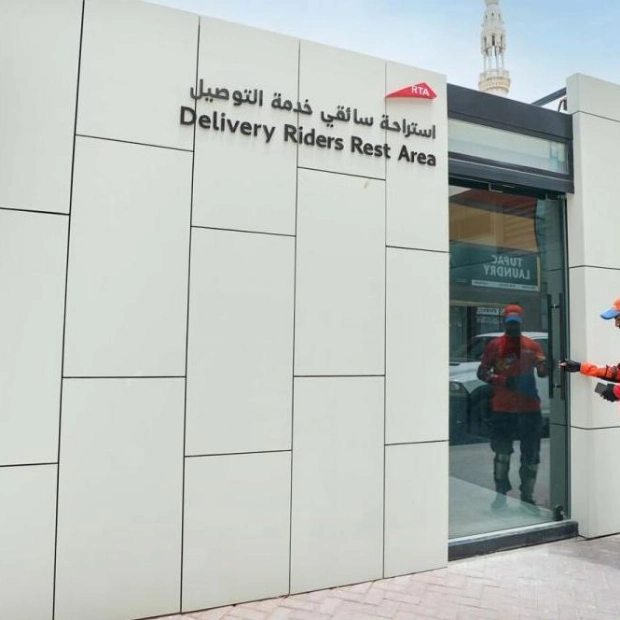Fifty Munduruku warriors wield machetes to carve through the dense undergrowth of the Amazon rainforest, delineating the boundaries of their ancestral lands, a task the Brazilian government has neglected. They create a six-metre-wide trail through thick vegetation, often shaded by the forest canopy, and every kilometre, they affix signs to tree trunks, proclaiming: "Federal Government, Sawre Muybu Territory, Protected Land." This silent yet assertive action stems from a community that has fought for recognition of their ancestral lands for decades, a recognition that would legally safeguard their territory from loggers, miners, and government infrastructure projects.
Chief Juarez Saw of the Munduruku village, Sawre Muybu, expressed, "This is not our job. It's the government's obligation to demarcate Indigenous lands, but they are not doing it," after the completion of their eight-day journey, during which they installed the 20th and final plaque. Brazil's Indigenous affairs agency, Funai, acknowledged staffing shortages but assured ongoing efforts to establish the boundaries of ancestral lands, a process that stalled under the previous administration. The expedition included women and children from the village, who, at the jungle camp, prepared meals of rice, manioc flour, and game, while young Munduruku children played in the river.
The last border clearance by the Munduruku was a decade ago, a period long enough for the rainforest to reclaim their markings. "We have been struggling to protect this land for 25 years. We continue to clean the borders to keep them alive," the chief remarked. "If we don't, more loggers and miners will invade." The Sawre Muybu territory spans approximately 1,780 square kilometres along the Tapajos river, a pristine tributary of the Amazon, which remains free of hydroelectric dams. The area has seen increasing invasions from illegal loggers and gold miners, who pollute the rivers and poison the fish with mercury, a threat to the Munduruku's survival.
The Munduruku's efforts to defend their land are also pivotal in the fight to prevent the Amazon from reaching a tipping point, according to environmental advocates. Indigenous knowledge and practices, along with legal protections, position them as crucial guardians of the rainforest, essential for mitigating global warming. The formal demarcation of Indigenous territories is crucial for securing constitutional protections. President Luiz Inacio Lula da Silva, who took office last year, has pledged to resume the recognition of new reservations, a process halted by his predecessor, Jair Bolsonaro.
The Munduruku's journey to mark their territory commenced on winding rivers, navigating with five long outboard skiffs beneath dense vegetation. During the expedition, they encountered an anaconda in the river, prepared to harvest its fat for its anti-inflammatory properties, but the snake, swollen from its recent meal, could not be pulled from the water. On another day, hunters returned with a capuchin monkey, prompting a Munduruku boy to rescue two baby monkeys clinging to their mother, taking them under his care for the remainder of the trek. The Munduruku, armed with old shotguns for hunting, also encountered illegal gold mine camps during the expedition, maintaining a tense but peaceful interaction.
Since Lula's administration took power, 10 new reservations have been recognized. There are 62 Indigenous territories awaiting official recognition, and approximately 200 more under study or with defined borders but lacking government protection, making them susceptible to invasion. While Indigenous advocates urge the government to expedite the process, Lula's promises have faced opposition from conservative Congress members, the influential farm lobby, and some political allies, who argue for more infrastructure in the Amazon to create jobs. A proposed hydroelectric dam project, which could flood most of the Sawre Muybu territory, remains a looming threat, despite being shelved in 2016 for failing to consult the Munduruku or conduct proper impact studies. In May, the recently privatized power company Eletrobras requested to update those studies, according to regulator Aneel. The Sawre Muybu territory also faces indirect threats from government plans to construct a 1,000-km railway for grain exports, which Indigenous leaders fear could facilitate access for loggers, land grabbers, and miners.
The Munduruku, numbering around 13,000, have inhabited the middle and upper reaches of the Tapajos river for thousands of years, in 11 territories—only two of which have full government recognition and legal protection. Funai completed a study in 2013 confirming the Munduruku's claim to the Sawre Muybu land, but no government has proceeded to officially demarcate the territory's borders. Tribe member and activist Alessandra Munduruku emphasized at the camp, "We are not begging, we are defending our rights," expressing a resolute stance against the encroachment of miners, loggers, and land invaders.






